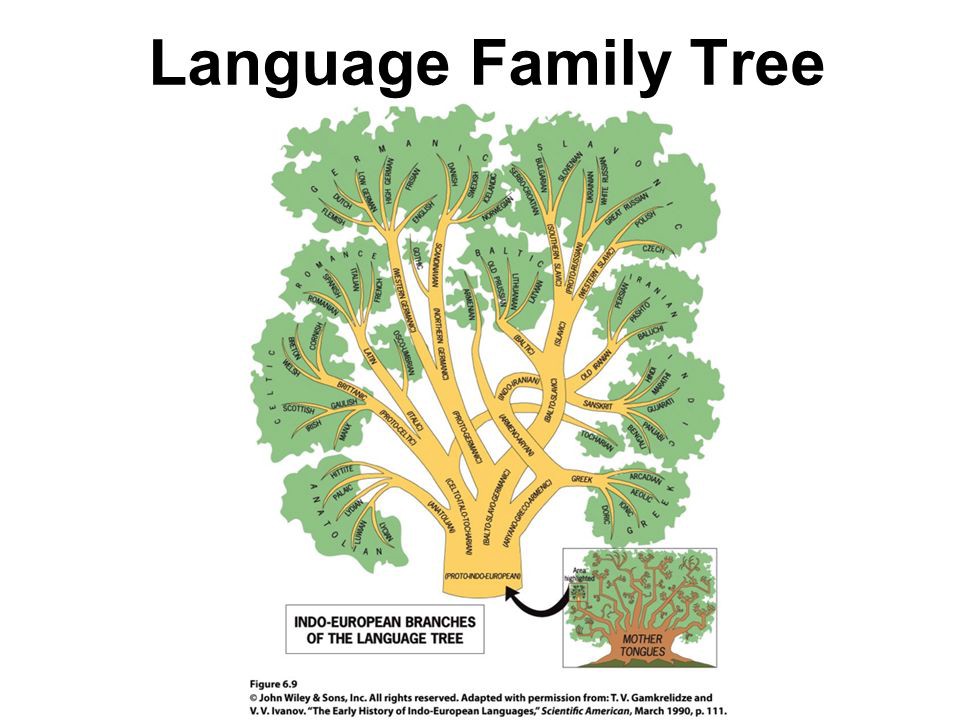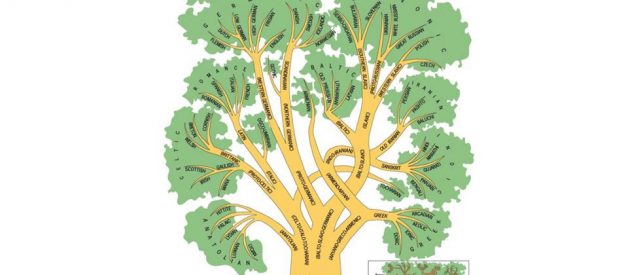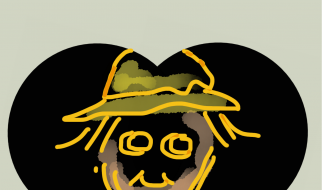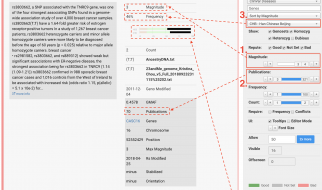We will never know. Or ?
Prime Minister of India Narendra Modi once praised Tamil as the oldest language in the world, a sentiment shared by a number of bloggers and sites.
Here?s the problem in a nutshell, or at least, according to my far-from-expertise self and the issues I?ve run into (there are probably more, but the point here is to hopefully resonate and bounce ideas off of people who are similarly intrigued but are unable to study this full-time inshaAllah):
- Spoken language existed long before written languages, but we don?t have a time machine, so we only really have written records to go off of.
- Spoken language changes overtime, and because of the way we define things (ex. old English became middle English but it?s not like it transitioned overnight), you could end up with a recursive line of languages that came from other languages and run into the whole proto-human language idea (origin of language) and that intersects with the origin of species and that?s its own issue.
Here?s the problem in not a nutshell:
Written Records and Language
The definition of ?language? is not as clearly-defined as one might think. Initially, you might say ?it?s verbal or written communication?. But think about languages like ASL: surely it?s a language, in that it conveys pieces of information from one person to another in a patterned, structural way, but with hand and body movements. Then there?s Silbo Gomero, a whistling language that transposes Spanish intonation and sounds into whistling patterns. Some argue that music and mathematics are languages too, extrapolating the idea of language as something communicating something to broader fields.
On the other hand, there?s ?written language? that we need to define. If you break down sentences, like the one you?re reading right now, to its crude elements, each letter is simply a construction of lines and angles. Pictures and symbols are made of these things too. Does that mean street signs are included within the definition of language? Does that mean photographs and pictures are languages, not in the artful sense, but in the technical sense as well?
So quite quickly, you can tell there?s quite a few definitions of language, with some languages being prototypical (as in, a good/typical examples of a language) and others erring on the fringe. Something intuitively tells us that yes, Mandarin is definitely a language, but programming languages (despite the phrase) like C++ don?t really seem like they are languages. At the very least, not in the same way we?d consider Swahili a language.
There?s different theories on what a language is and the best way to define it, especially in the case differentiating human language from animal language ?something I?d like to write about in-depth once I learn more ? but the reason the definition matters is because it?s only once we know the parameters we are working with that we can then seek out the oldest language, whatever that means, in the world.
The focus in this article is on the technical restrictions of trying to determine the oldest language, lest it lead on a tangent over phonocentrism and the philosophy of language. Here, the focus is on written language simply because there?s no sound record of spoken (heard) language before humans were able to reproduce, well, recorded sound. Language, no doubt, was spoken before humans took to the pen, but in terms of knowing with surety, we must look to written records. Our surety extends insofar the earliest records we uncover, beyond that dating becomes a complex endeavor demanding of history, anthropology, and linguistics.
One caveat I?d like to mention, though, is written records themselves could indicate earlier usage or be explicitly the result of oral transmission ? which can further our estimates of a language?s usage back substantially. The preservation of the Qur?an, for example, first reveled to a primarily oral society, and its rigid preservation through memorization (the emphasis remains even now). Or the Rigveda (Vedic Sanskrit hymns), codified in written form after, presumably, centuries of preservation by oral tradition.
So, this problem narrows the question down to written language. The question, now, is better worded to:
?What is the oldest existing written record of language that we have today??
But from language to written language, we?ve reached a similar lacuna in definitions: what constitutes written language? What distinguishes writing from writing system?
Example: if the Vin?a symbols (also known as the Danube script), found on artifacts from the neolithic era, fit your definition of a writing system, then it might be in the running for the oldest language. But there?s no evidence that we?ve found as of April 10th, 2020 that implies there?s a comprehensive grammar of some sort, and no clue what spoken language it represents. Harold Haarmann, a German linguist, takes the position that it?s the oldest writing system in the world. Others disagree. The consensus, though, seems to be on Cuneiform, a writing system of Sumerian, as the oldest script in the world. It sits alongside Egyptian language and hieroglyphs, and there?s some debate there on which came first, especially on the line between proto-writing (early writing symbols) to a comprehensive system that you could call language. Which leads to the next point quite nicely.
Proto-languages: the first language?
The oldest language could have come from another language we have no record of, but then does there exist an oldest language that before which no language existed? In other words, what is the first language ever to be spoken?
A proto-language is a hypothetical language that an existing or previously extant language came from.
The terminology around languages in historical linguistics, especially origins of language, parallels genealogy. Current theories use a tree-model, where a language that came from another language is the latter?s daughter language. Languages that came from the same language are sister languages and are said to be ?genetically related?. Languages that are related are part of a language family.

If you?ve ever felt that some languages are ?closer? (in terms of lexicon, syntax, and other features) than others, or that some languages are easier to learn if you?re an English speaker, then this concept will be easily digestible. The closer languages are too each other, the more features they share. And the more features they share, the closer in relationship the languages are, likely sharing a more recent common mother language. French, Italian, and Spanish, for example, are Romance languages and sister languages that evolved from some form of Latin.
But what language did Latin come from? Old Latin. So what language did Old Latin come from? Etc. Or Tamil, for example. There?s no doubt that it has a rich and long history, and the most ancient (that we know of) literature preceding even that of Sanskrit, but do Tamil speakers today understand the Tolkappiyam, the oldest text of Tamil literature and a grammar book, the same way their ancestors did? Why do we call the Tamil of today and the Tamil of the time of Tolkappiyam the same? Or consider the Greek of today and the Greek of the Iliad as the same language, despite time
It isn?t solely a matter of time and precursors either. For example, take Chinese ? some consider it one language when in reality it?s composed of varieties that are so different, like Mandarin and Cantonese, that speakers often can?t understand each other, unless they?re familiar with the other variety. Hindi and Urdu, on the other hand, are considered different languages entirely but modern speakers can understand each other to a greater degree than Mandarin and Cantonese speakers can. This sends you in another direction of politics and how languages are even classified, as opposed to dialects or creoles.
This is a simplification, of course, but the point is (keeping in mind these branches and divisions aren?t clean, and there?s a lot of crossover happening), languages change overtime. Asking ?what?s the oldest language in the world? depends on languages always being independent, discrete, clean-cut entities. Some languages cropped up and then died, no longer spoken. Some borrow so heavily it?s difficult to recognize its origins at face-value, like English, a West-Germanic language with Latin and French influence.
Other languages are isolates, with no (known) relative, like Japanese or Korean. Meaning: their features and grammar and lexicon are unique enough that we don?t know for sure what other languages could share a common precursor with them. English as we know it, like mentioned earlier, evolved from Middle English, Old English, some Germanic variety, all the way to it being classified as Indo-European and a descendant of a theorized proto-Indo-European language. And beyond that, the idea of a proto-world language, a language that all languages come from, has been toyed with in the fringe of linguistics. Do precursor forms of communication count (see bow-wow and other theories on the origin of language) in this tree?
This is not to say it?s a free for all ? clearly, German is a different language from Portuguese ? and there are ways linguists can analyze language features and its history to define it. They have methodologies to distinguish when one language fractured off from another, and measuring ?genetic relatedness? between languages.
But, it is like human evolution?to ask ?what?s the oldest human?? And as a Muslim, this poses all sorts of interesting (to say the least) notions. Lest we get into the realm of Darwinism and human origins (because in the end, human language is tied to humanity), this problem of the original question ends here, in this piece.
The Question
There are certain things we do know. The Epic of Gilgamesh is the earliest surviving work of epic literature, P??ini?s A???dhy?y? is earliest surviving grammar of Sanskrit, etc. Other things we must be content with not knowing fully, whatever curiosity demands of us.
There?s a well known story in Genesis 11:1?9 that describes a tower (the Tower of Babel) to explain the existence of many languages. The entire Earth spoke one language, and they tried to build a tower to reach the heavens: but the Lord confounded their language so they could not understand each other, and the people were scattered.
Lesser known (to the wider public) is Surah Al-Baqarah from the Qur?an:
?And He taught Adam the names ? all of them. Then He showed them to the angels and said, ?Inform Me of the names of these, if you are truthful.?? (2:31) (Sahih International Translation)
And Surah Al-Hujurat:
?O mankind, indeed We have created you from male and female and made you peoples and tribes that you may know one another. Indeed, the most noble of you in the sight of Allah is the most righteous of you. Indeed, Allah is Knowing and Acquainted.? (49: 13) (Sahih International Translation)
The first words ? language ? a human spoke was taught by God. And from that came humanity, coalescing into tribes and nations and cultures and tongues. I leave you with that.


